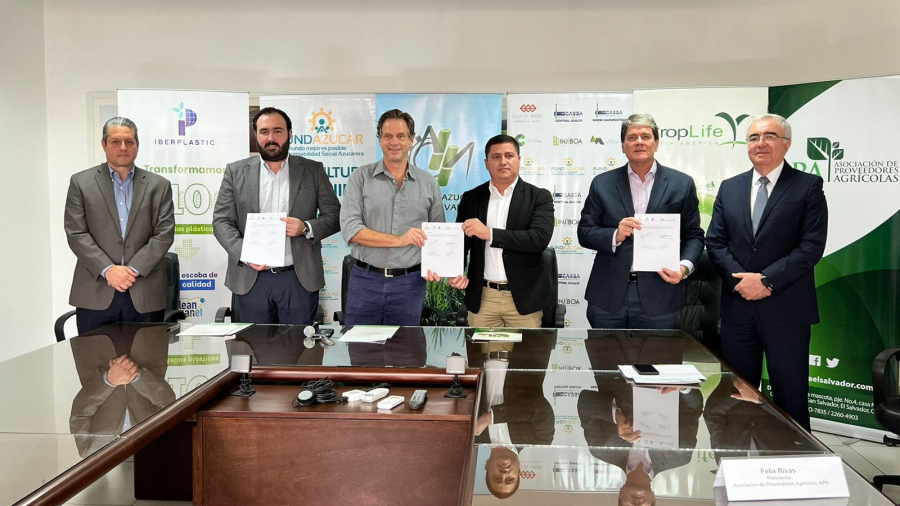The joint work between sugar cane producers, sugar mills, agricultural input suppliers and Iberplastic, makes possible the implementation of the program "Management of solid waste derived from agrochemicals in the sugar agroindustry", which incorporates a circular economy by facilitating the collection and transformation of empty agrochemical containers into cleaning products, converting a waste into raw material for a new product.
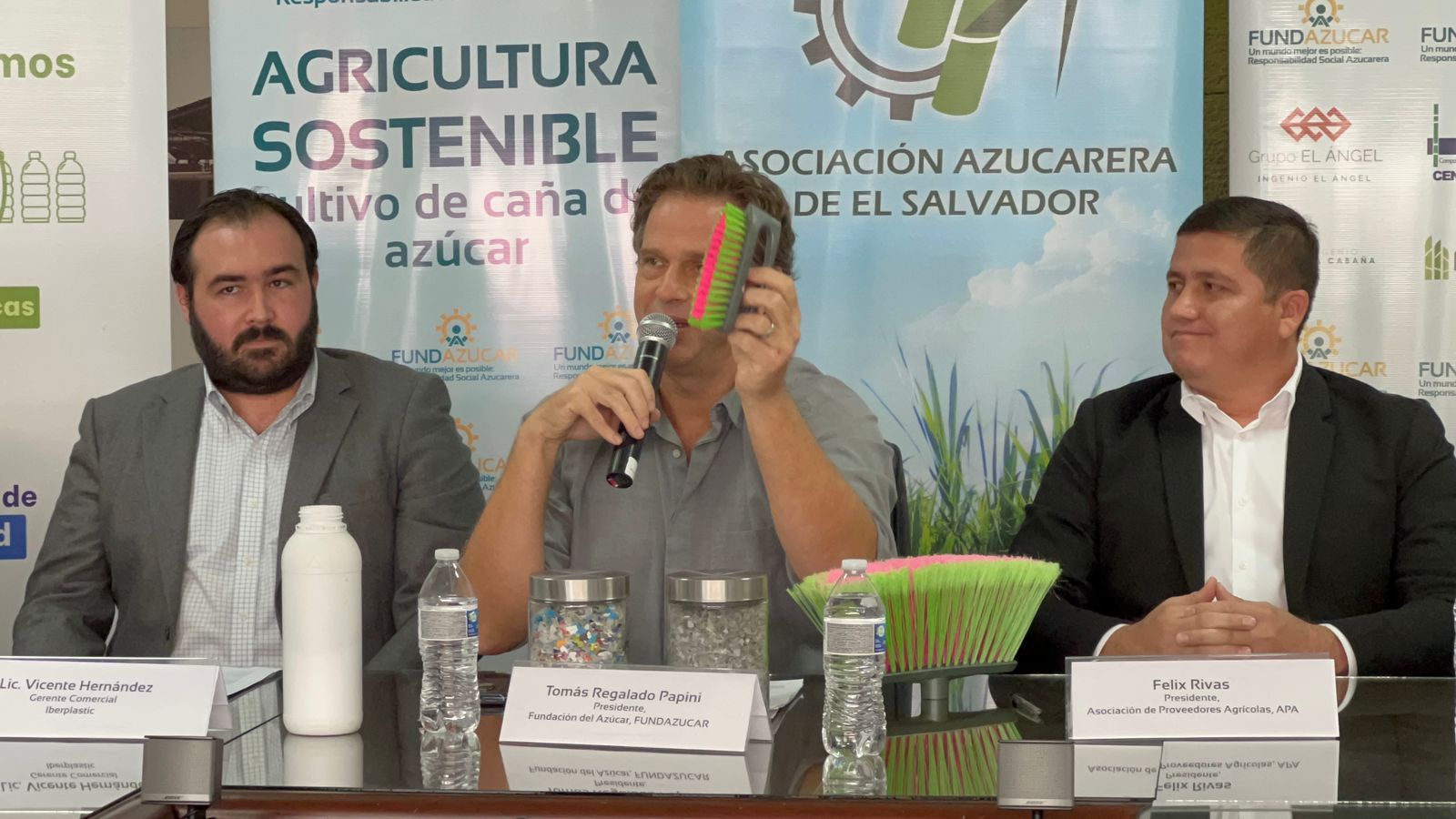
Globally, we are evolving from a linear economy to a circular economy and this program of the sugar agroindustry in El Salvador is an example of the change that is taking place in the country and how the sugar sector is joining these changes.
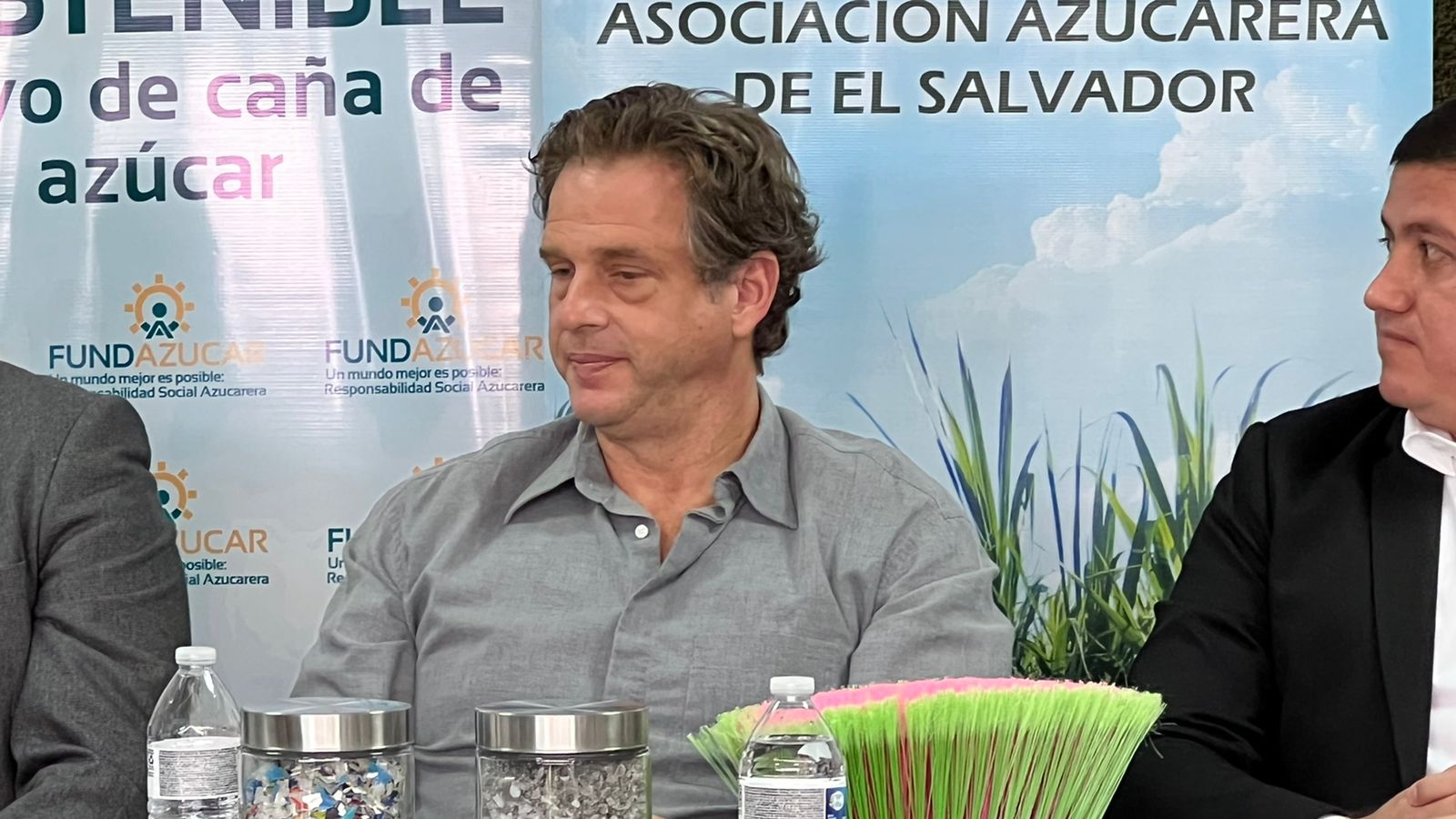
The agrochemical solid waste management program provides environmental benefits by collecting and recycling empty agrochemical containers, significantly reducing their presence in water and soil sources and minimizing adverse effects on human health and the environment, while promoting a culture of recycling.
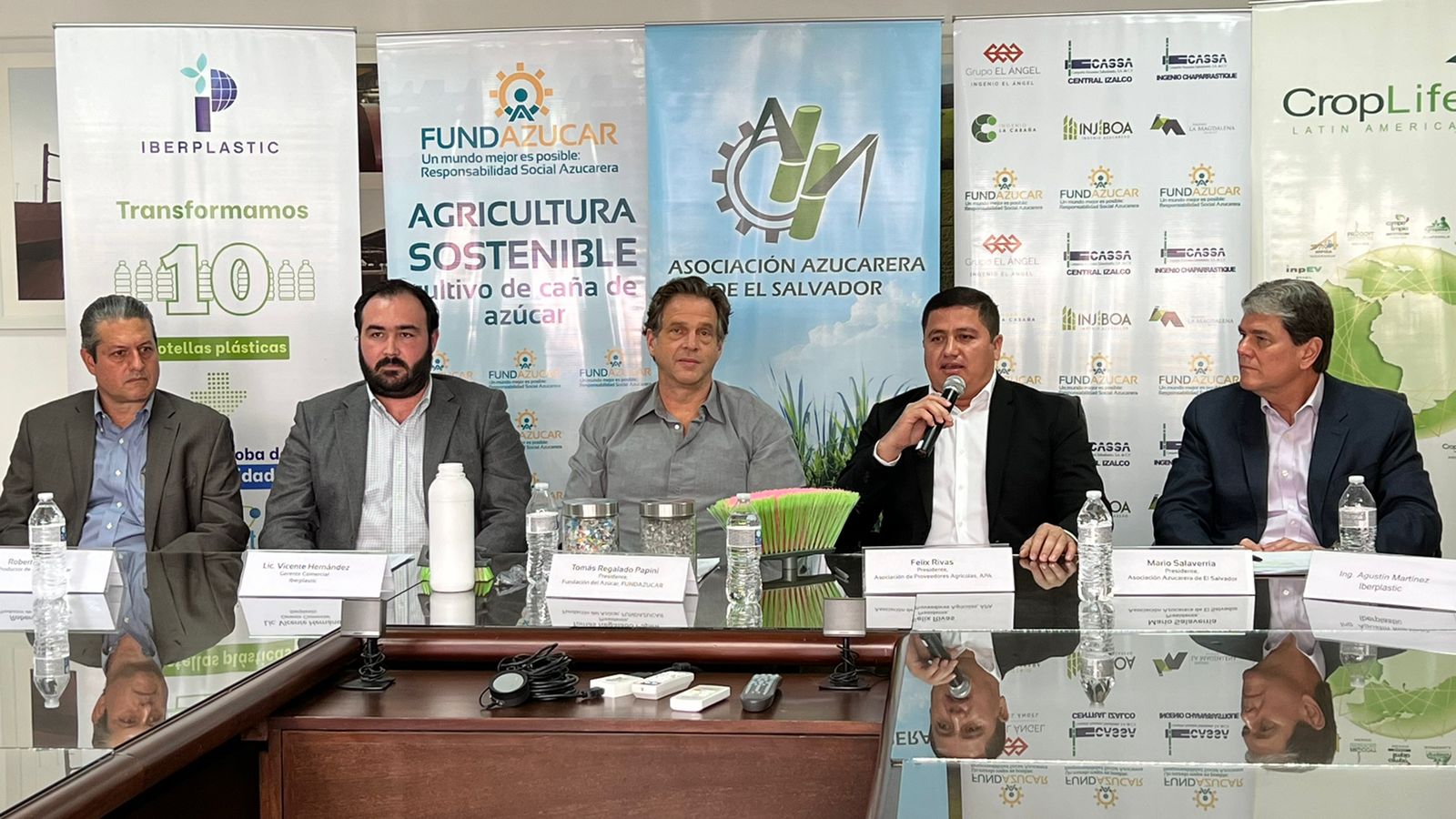
The "Agrochemical Solid Waste Management" program includes the following stages to close the production cycle of a product:
Environmental education and awareness, given by Fundazúcar and Asociación de Proveedores Agrícolas, aimed at sugarcane producers on the economic and environmental benefits of collecting empty agrochemical containers, as well as the requirements that the containers must meet to be deposited in collection centers or collection points.
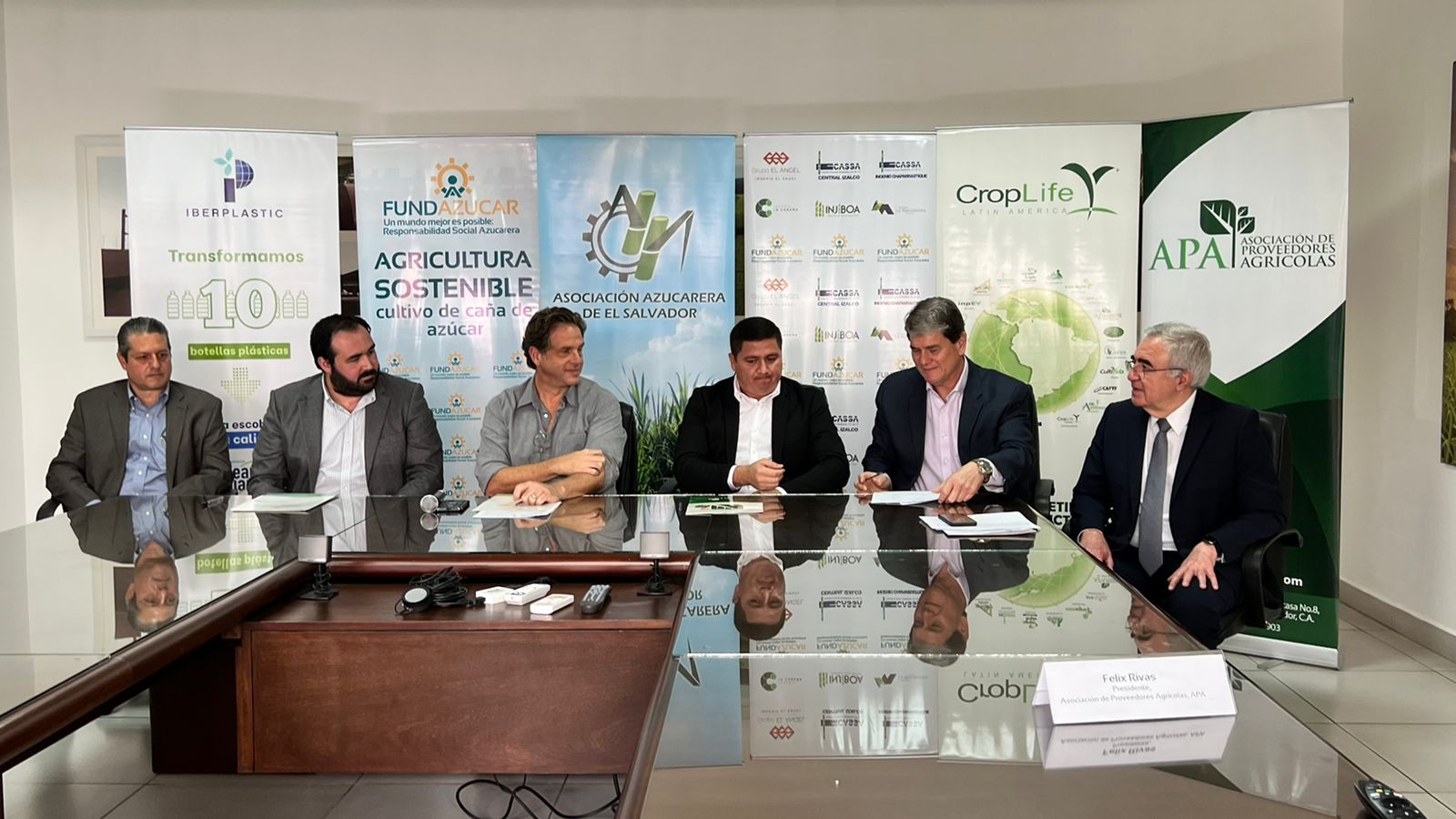
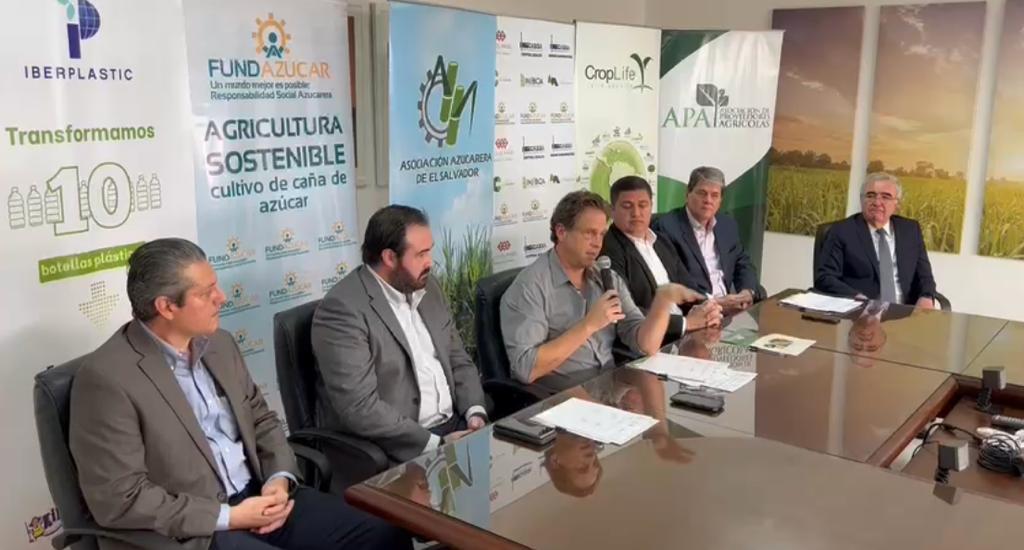
Collection and preparation of containers, the sugarcane growers, who are aware of the situation, collect and prepare the empty containers that will be recycled and transformed into another product for a second use. This stage includes: triple washing, perforation, removal of the aluminum seal, separation by type of plastic and separation of the cap.
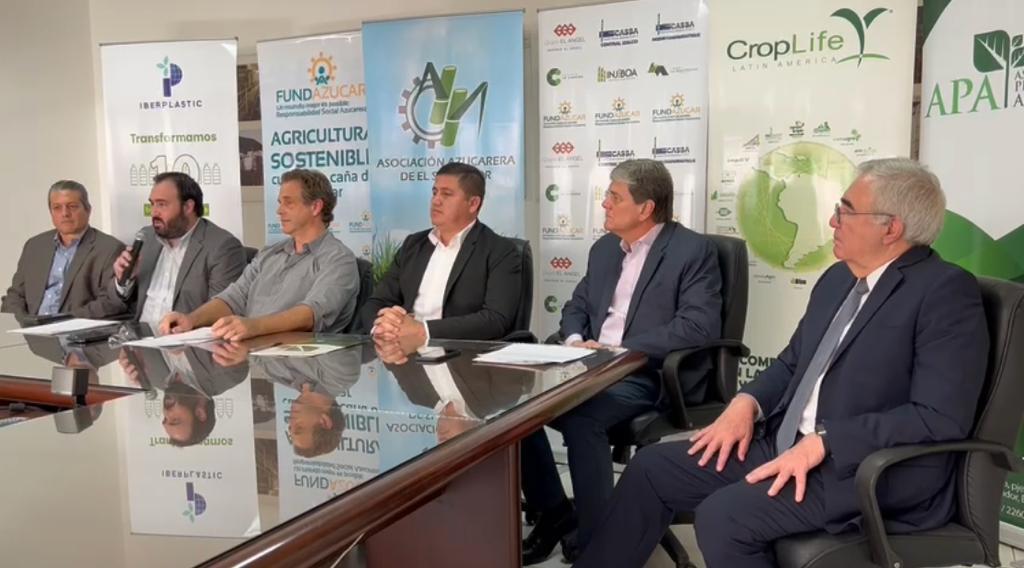
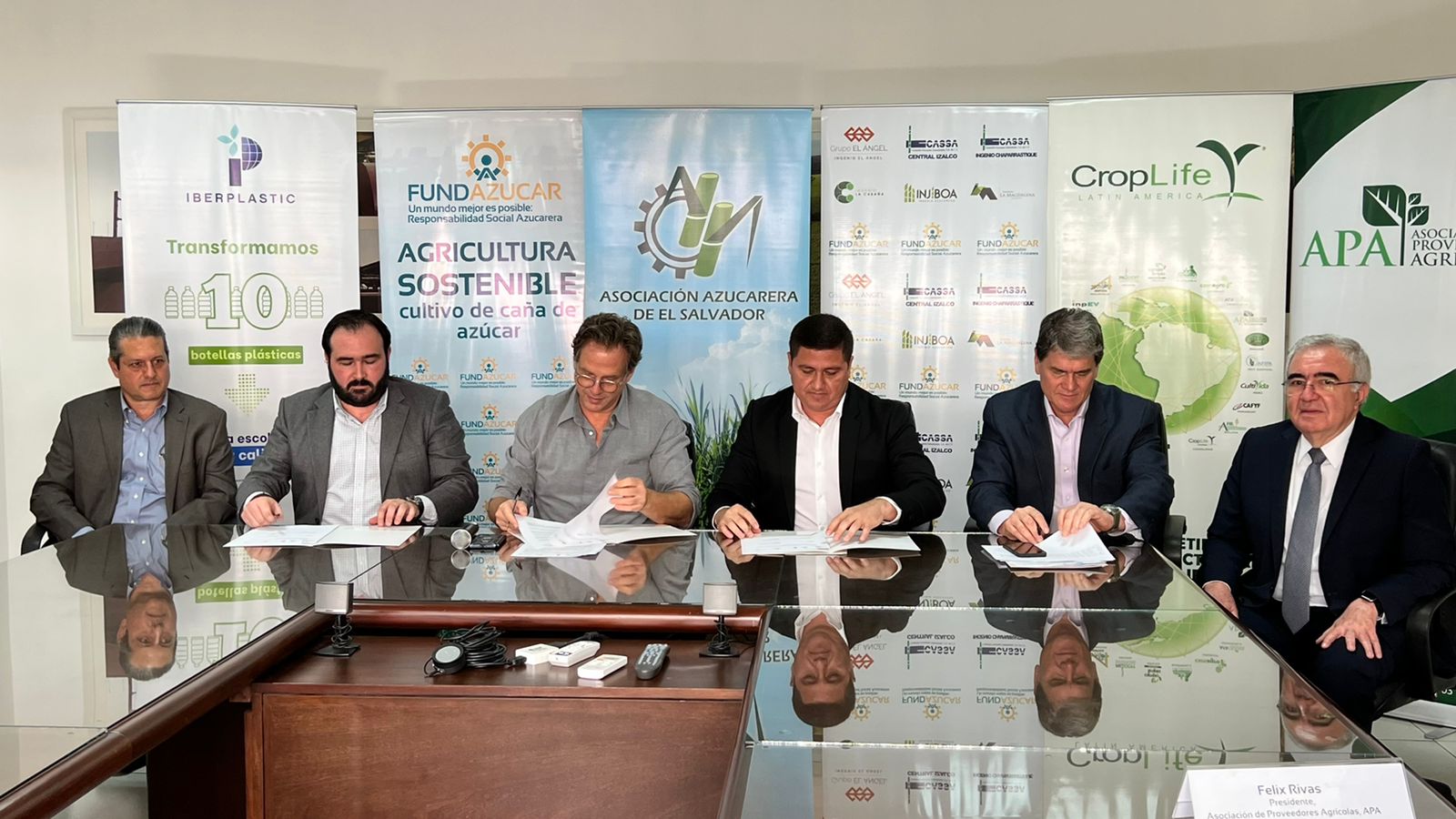
In partnership with the sugar mills, Fundazúcar provides producers with collection points to facilitate collection in a suitable place and ensure that the containers meet the requirements established for use as raw material for another product.
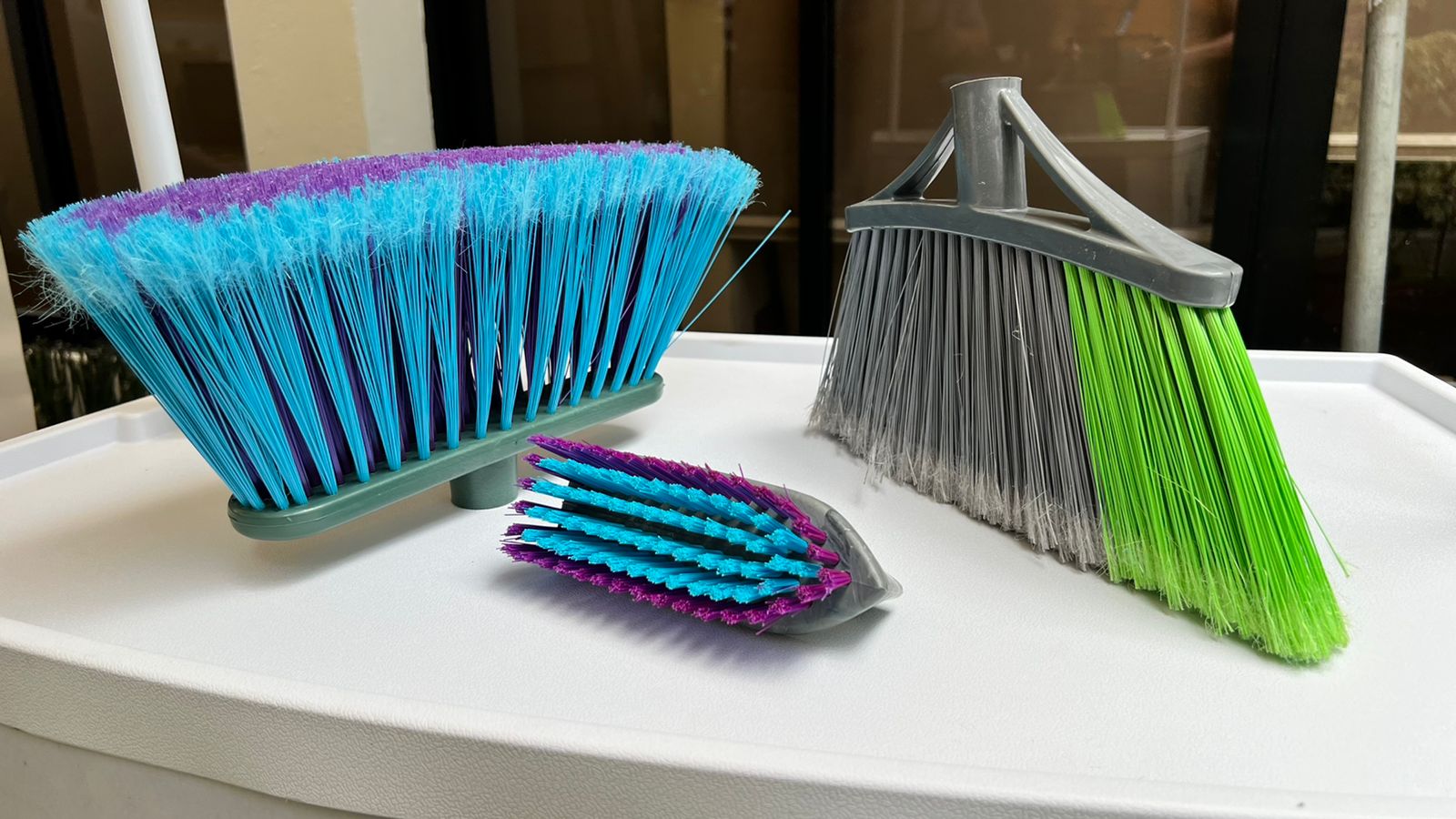
Ingenios and the Asociación de Proveedores Agrícolas (APA) carry out the collection route from the collection centers, collection points, and sugarcane farms to the central collection center for conditioning and subsequent transfer to Iberplastic, which uses recycled raw materials.
Iberplastic receives the empty containers and transforms them into brooms, shovels, or cleaning brushes that will be sold on the domestic and foreign markets.
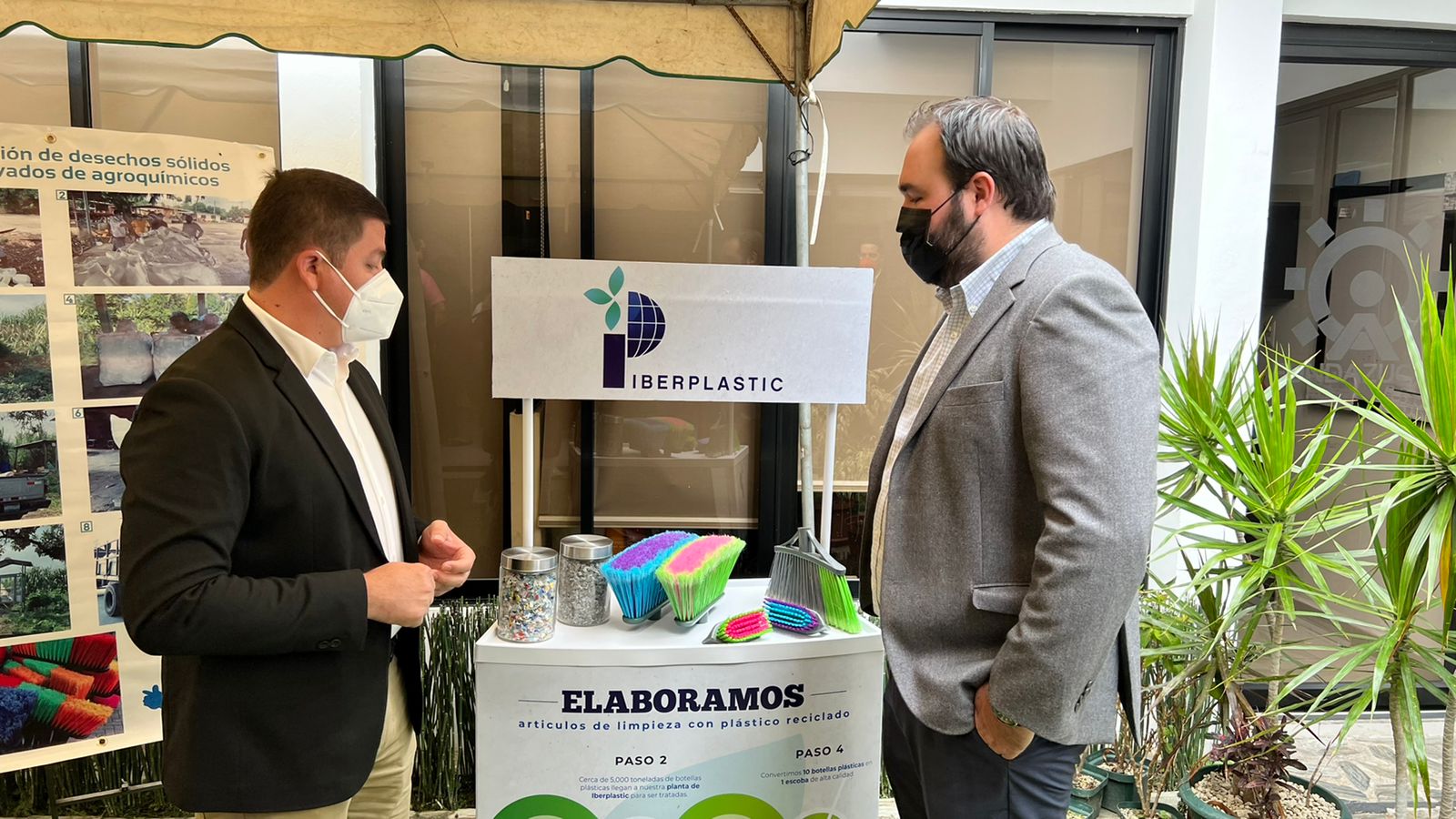
The implementation of the agrochemical solid waste management program allowed, in its first phase during the year 2021, the transformation of 33,381 pounds of empty agrochemical containers from agriculture into 53,127 brooms, of which 23% correspond to sugar cane cultivation.
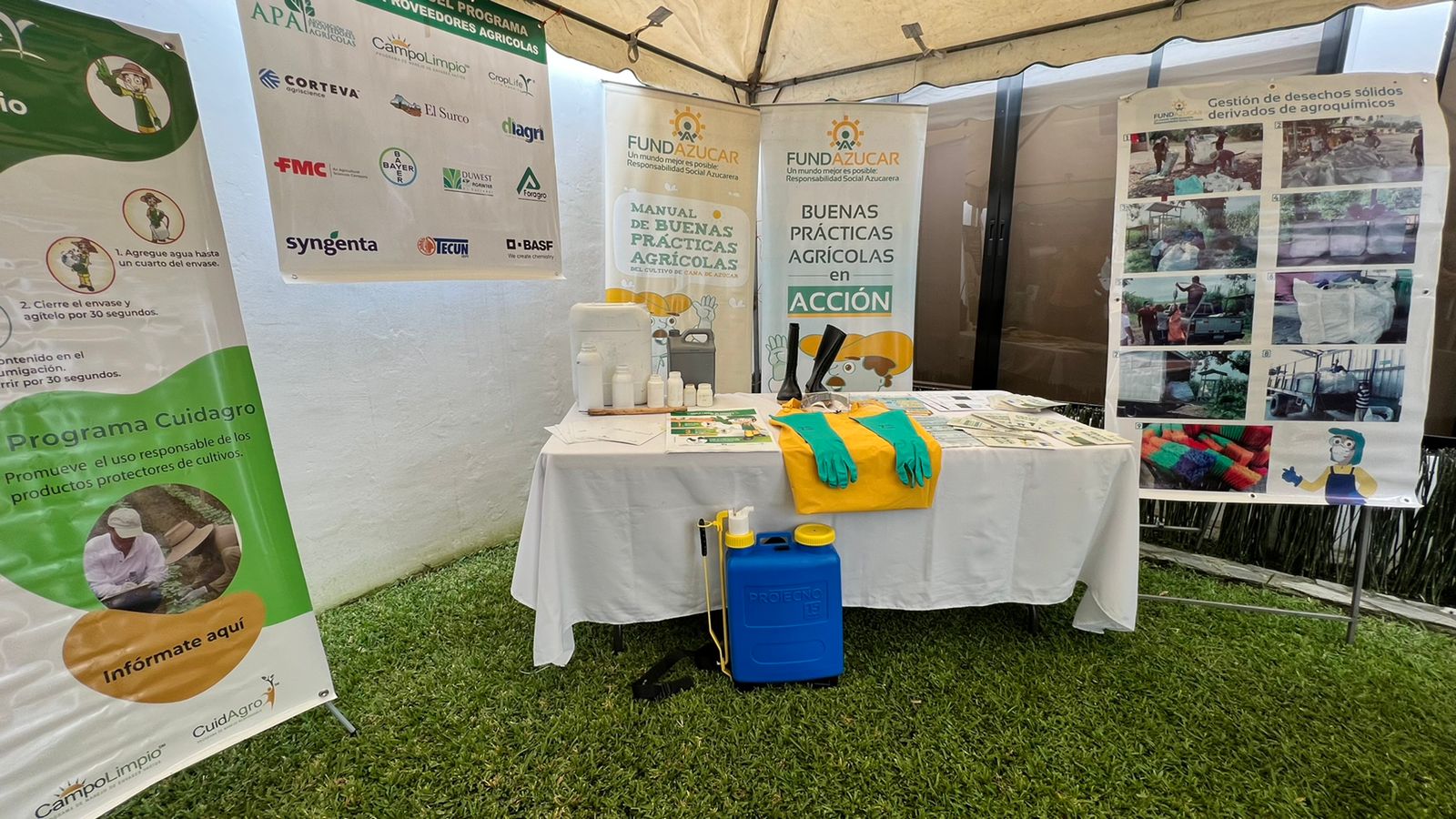
Currently there are 3 collection centers in Sonsonate, Jiquilisco and San Miguel, in addition to 3 collection points located in Jiquilisco, El Tránsito and San Dionisio; the sugar sector expects to gradually increase the number of collection centers and collection points until reaching national coverage and achieving 100% collection of inputs used by the value chain. In addition, this program could serve as an inspiration for other crops nationwide and thus achieve an even greater impact, since the sugar sector represents 10% of the area cultivated nationwide.
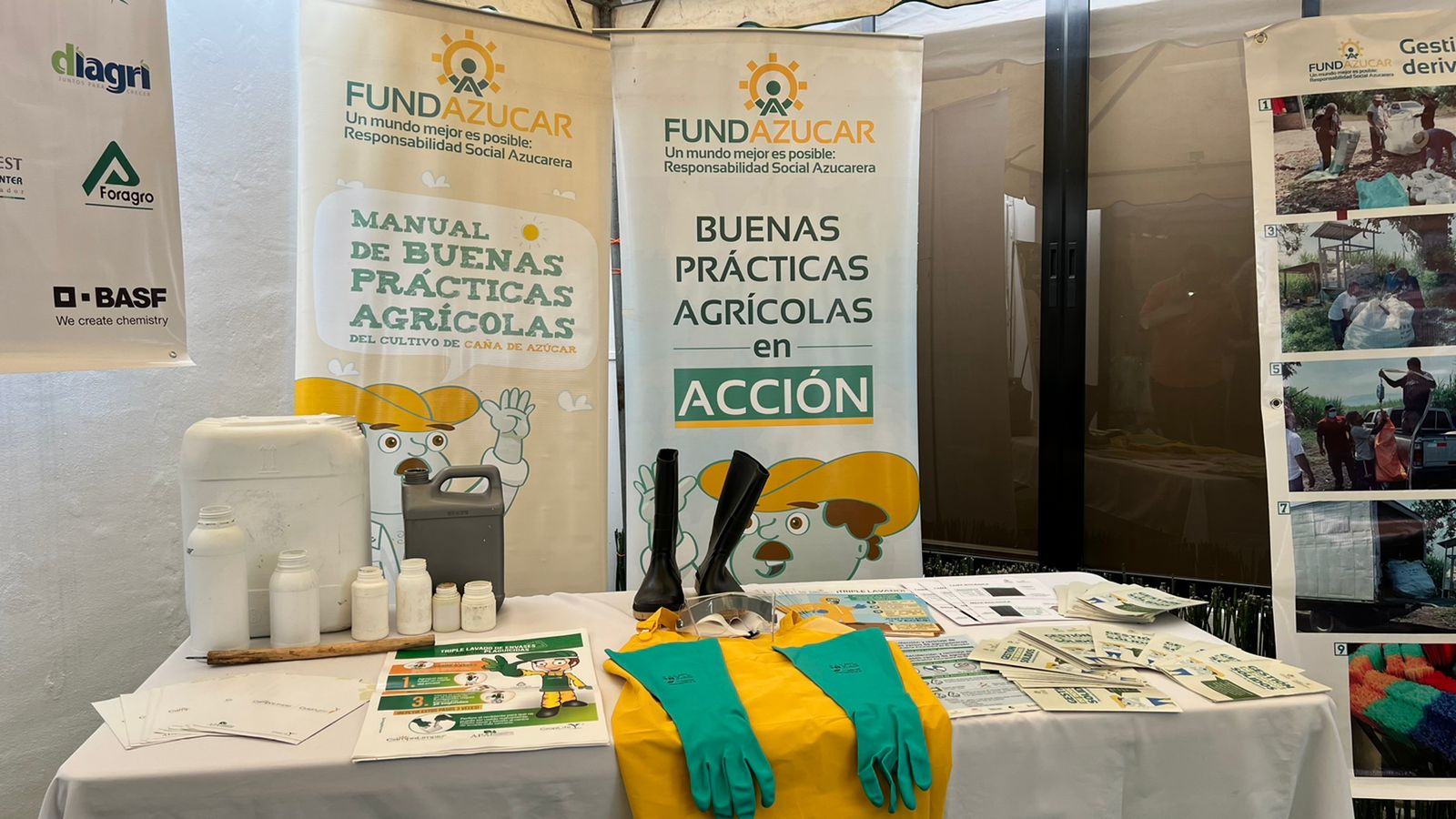
Responsible environmental management, implemented through this program, involves incorporating one more element of sustainable production patterns in the salvadoran sugar agroindustry, conserving the environment by using resources efficiently and promoting a circular economy that contributes to the United Nations Sustainable Development Goals such as 12 Responsible production and consumption, 13 Climate Action, 14 Underwater Life and 17 Partnerships to Achieve the Goals.
 English
English  Español
Español 
